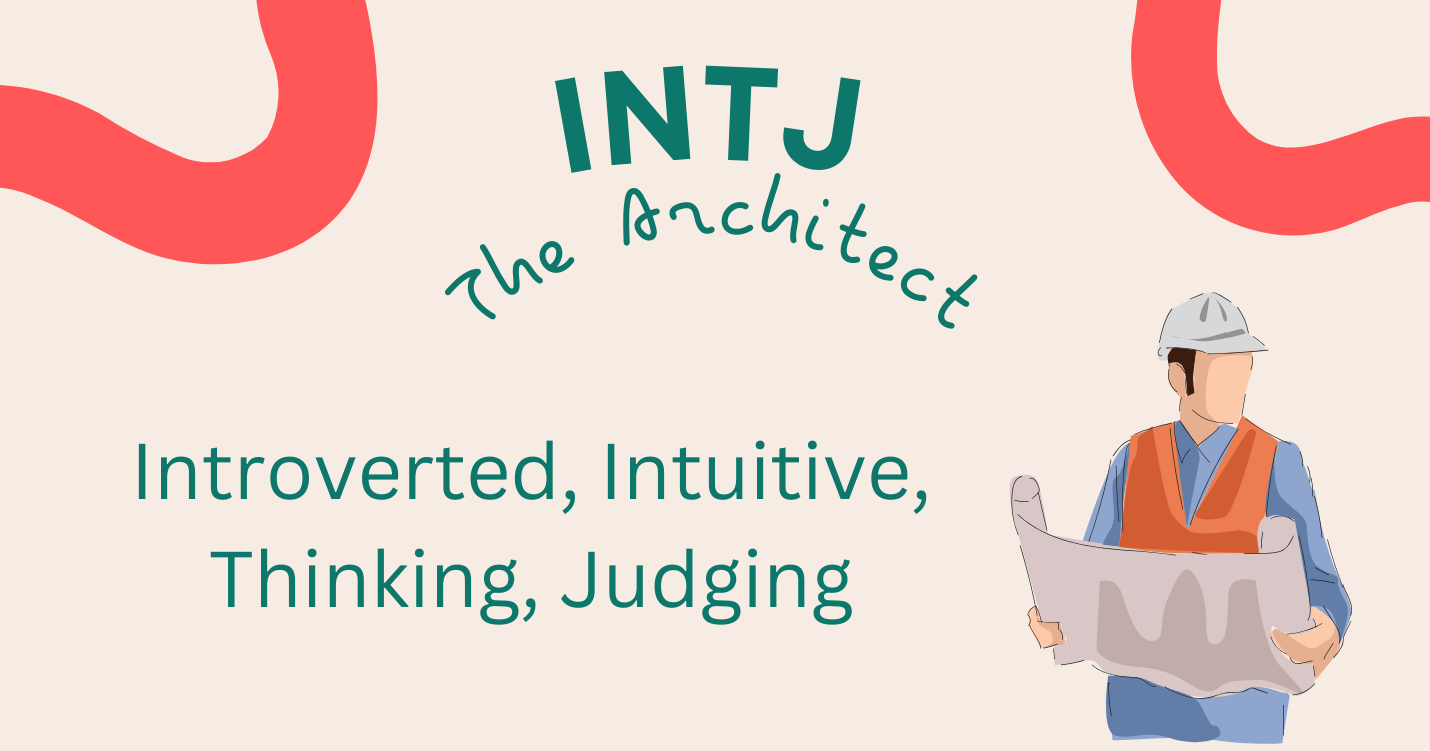
INTJs derive energy from solitary thought and introspection (Introversion), lean towards abstract concepts and future scenarios over immediate facts (Intuition), base their decisions on logical reasoning rather than emotional considerations (Thinking), and prefer planning and structure over spontaneous flexibility (Judging).
People with the INTJ personality type tend to be highly independent, confident, and self-sufficient individuals. They are analytical, creative, and driven.
INTJs are sometimes referred to as “the Architect” or “the Scientist,” “the Strategist,” or “the Mastermind.”

INTJ Strengths
- Strategy. INTJs not only see the plan or course of action, they are ready and prepared with several back-ups depending on the various circumstances that could possibly arise.
- Innovation. Though the INTJ may outwardly appear intractable, as a type they are actually quite receptive to and supportive of change and innovation, and this open approach helps to enhance their problem-solving savvy.
- Determination. INTJs are revered for their bravery and steadfastness in the face of challenge. They are characteristically determined in whatever they are doing, even to the point of relentless, and are not afraid to move in to tackle the really difficult challenges. Rather than feeling daunted or frustrated, this excites and exhilarates them
- Willingness to Learn. INTJs aren’t only looking to change externals and other people. They are also diligently committed to working on themselves
INTJ Weaknesses
- Superiority. The INTJ’s prowess in the area of intellect, logic and reason is unarguable and definitely among their chief strengths, as is their confidence in their ideas
- Emotional Distance. INTJs are also known for their low EQ and unwillingness to engage the emotions—their own or others. Preferring to conceptualize the world on a logical, rational basis, they tend to have little patience for emotional concerns.
- Perfectionism. While the meticulousness of the INTJ can be a strength, as in all things, too much of a strength can easily become a weakness, and for the INTJ, this natural fastidiousness quickly becomes perfectionism, and in this they can be quite fierce and painstaking.
- Imbalance. The INTJ places a high priority on work and will be quite devoted to his or her professional life. But this comes at a price, namely in time that might be spent on family, other relationships and leisure.
INTJ Growth and Development
In order to reach their full potential, INTJs should:
- Go outside of themselves.
- Go inside. INTJs don’t naturally introspect deeply or spend much time considering their emotional state.
- Balance between professional and personal life
- Pick their battles – need to understand that sometimes you have to let the small things go so you can accomplish the big things in the long run.
- If it ain’t broke…and even if it is.. What they may not realize is that not all people want to be fixed and not all companies want greater efficiency.
The INTJ at Work
The ideal work environment for an INTJ is logical, efficient, structured, and analytical, with colleagues that are competent, intelligent, and productive. The ideal job for a Mastermind allows them to use their analytical skills to problem-solve in a challenging environment, and to take responsibility for implementing their ideas to create efficient, innovative systems.
INTJs in Love
In relationships, the INTJ is loyal but independent. INTJs can be almost scientific in choosing a mate and make devoted partners once they have found a match that fits their rigorous list of requirements. They often have clear ideas about what makes for a solid relationship and are unwavering in their pursuit of this ideal. INTJs often have a passion for self-improvement and are encouraging of their partners’ goals and intellectual pursuits. However, they do not usually see the need for frivolous affection or romance, feeling that their devotion should be evident.
INTJs as Parents
As parents, INTJs are devoted and supportive. They set firm limits and provide consistent reinforcement, but within that structure allow a lot of latitude for their children to explore their own interests and potential. They are encouraging of their childrens’ intellectual pursuits and enthusiastic about sharing knowledge.
INTJ Communication Style INTJs are direct and detached in their communication. They often naturally see how something could be done better and usually communicate their criticism in a straightforward, logical manner. They are typically independent and calm; they are not so much concerned about being liked or appreciated as they are with being competent and thoughtful. Their communications are typically well thought-out, insightful, and strategic. They often plan well into the future and offer big-picture analysis for improving systems.


